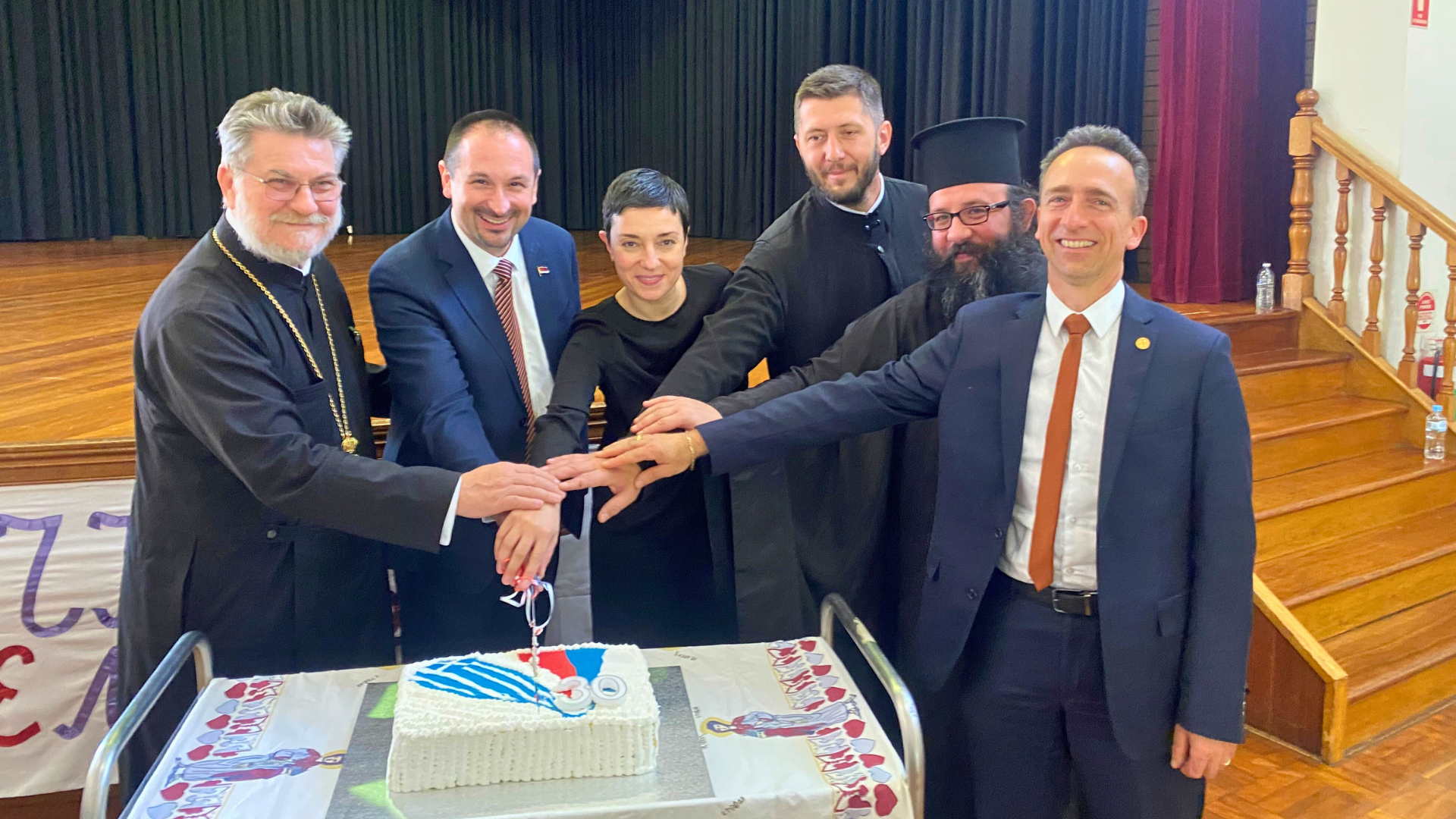On Sunday, September 22, the 30th Greek-Serbian Orthodox and Cultural Friendship Day was celebrated in Sydney. The event featured the significant presence of the diplomatic representatives of Serbia and Greece in Australia.
The celebration is always eagerly anticipated by both Greek and Serbian communities and is traditionally held in mid to late September each year. However, last year, due to the prolonged absence of the coordinators from Australia, the meeting of the two communities did not take place.
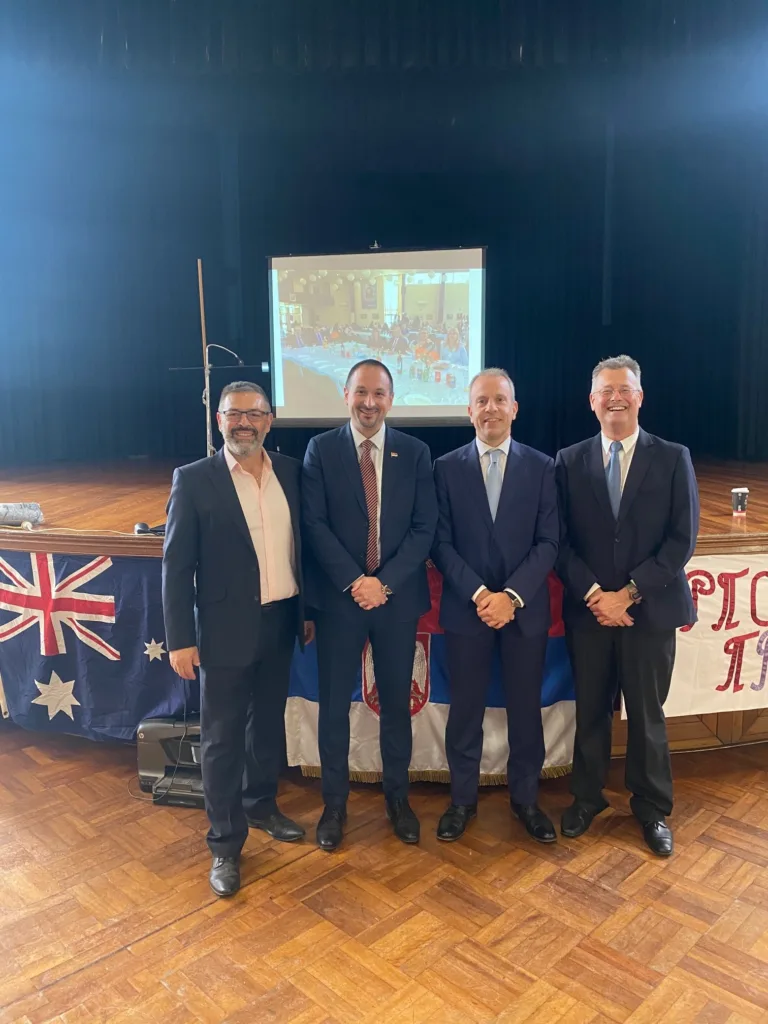
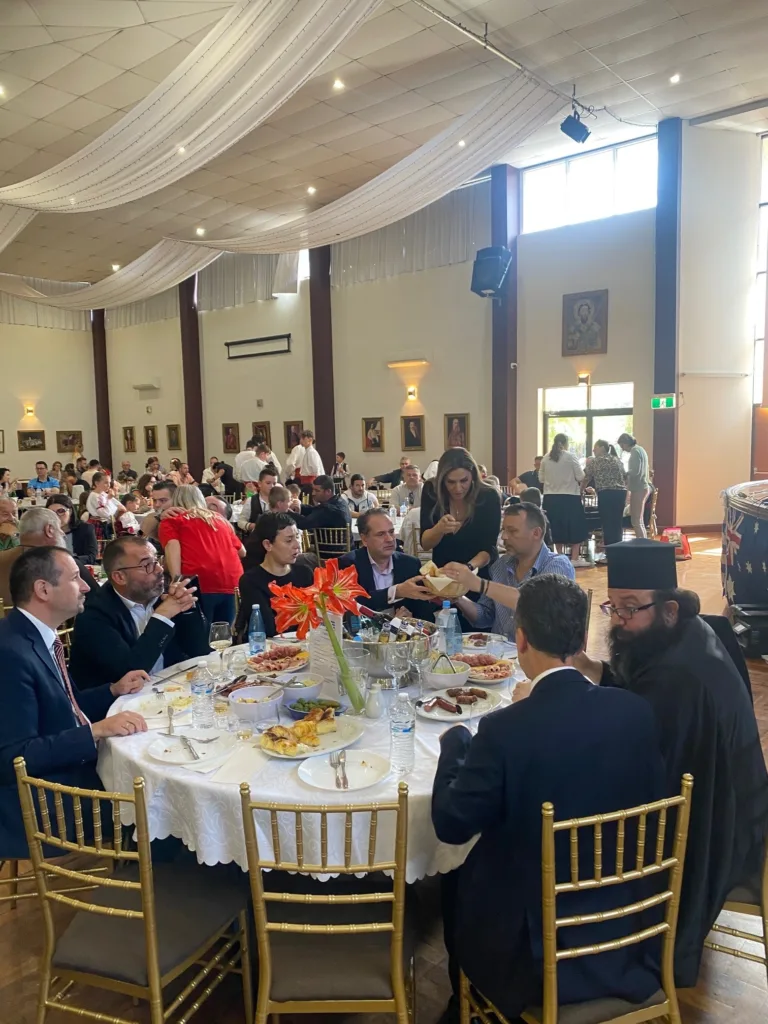
It’s worth noting that the first “Greek-Serbian Orthodox and Cultural Friendship Day” took place in 1993 at the hall of the Serbian Orthodox Parish-Community of St. Stefan in the western suburbs of Sydney, and has been held in the same venue for three decades now.
The doors of this large parish hall are always wide open, welcoming Greeks, Serbs, other Orthodox Christians, and friends of both communities to experience a rich and unique Balkan musical and dance program filled with warm camaraderie. The facade and interior of the building are adorned with the flags of Greece, Cyprus, the Star of Macedonia, and Serbia.
Historical links between Greeks and Serbs:
The affection that Serbs hold for Greeks in Australia, Greece and Cyprus is evident in the hospitality they demonstrate during the celebration.
Greeks rushed to assist Serbs in the early 1990s and later towards the end of that decade when Serbs faced civil wars in the former Yugoslavia. The dissolution of the Yugoslav federation wounded the souls of ordinary Serbs and other Slavic peoples who constituted this strong Balkan nation. The American-NATO bombings at the end of the 1990s, particularly in Serbia, prompted a wave of unwavering support from Greeks, Cypriots and Greek expatriates worldwide toward their Orthodox Serbian brethren throughout the former Yugoslav territory.
During these tragic moments of attacks on Serbia, Greeks, especially Macedonians in northern Greece, welcomed and hosted hundreds of orphaned Serbian children from Serbia, Bosnia and Herzegovina, and other areas of the former Yugoslavia in their homes in Thessaloniki, Kavala, Pieria, Pella, Kastoria, and elsewhere, trying to soothe the souls of the wounded children as much as possible.
The Serbs, both within Serbia and among their diaspora (such as here in Sydney), never forget the psychological and financial support and love from Greeks toward the orphaned Serbian children and the displaced families devastated by war. Greek assistance is deeply engraved in the memory of the Serbian people and, of course, the Serbian diaspora.
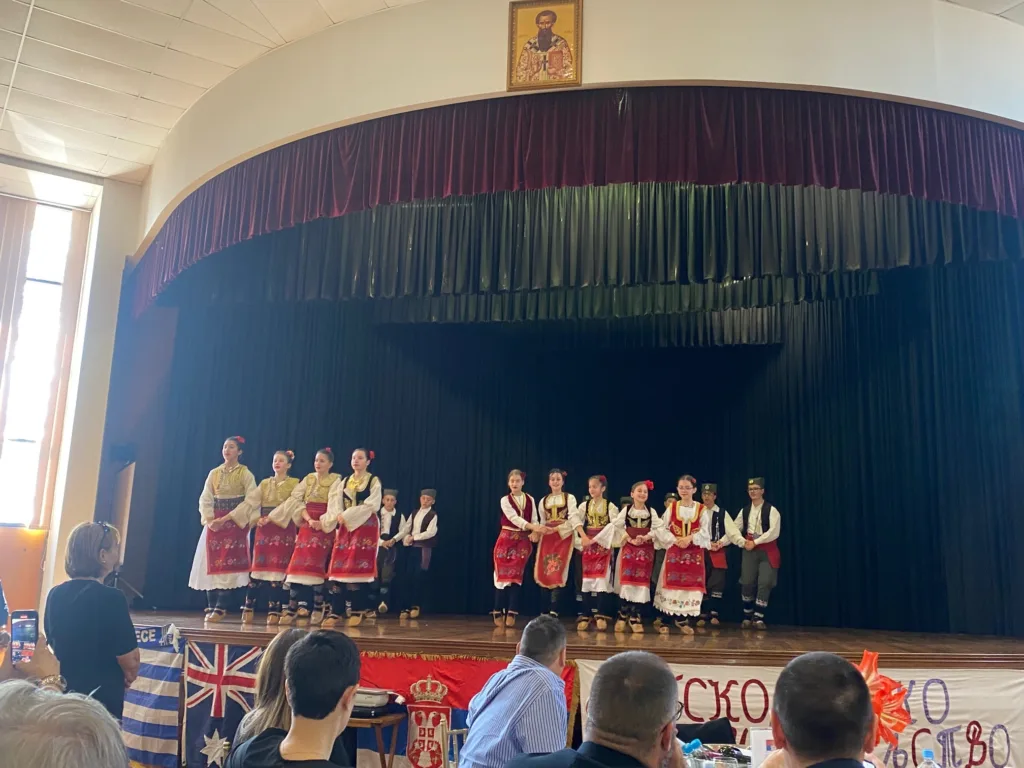
The opening, messages and official guests:
The 30th Greek-Serbian Orthodox and Cultural Friendship Day commenced with a Divine Liturgy led by Father Aleksandar Ivanovic, the priest-in-charge of the Serbian Orthodox Church of St. Stefan. Present for the service were Serbia’s Ambassador to Australia, Rade Stefanovic, and Greece’s Consul General in Sydney, Yannis Mallikourtis, attending for the first time.
Other officials present from the Greek side included First Secretary for Public Diplomacy at the Consulate of Greece in Sydney, Anastasia Christofilopoulou; parish priest at the Greek Orthodox Community of St Paraskevi and St Barbara in Blacktown, Father Alexios and the parish president, Dr Vlassis Brakoulias; the president of the Pan-Macedonian Association of Sydney and New South Wales, Anastasia Karakominakis; and councillor Evgenia Kapori, among others.
After the church service, the diplomatic representatives, parishioners, and hundreds of guests moved to the adjacent hall for lunch and to partake in the celebration, which began with a multitude of slides showcasing various photos from the event’s history.
The celebration kicked off with the playing of the national anthems of Serbia and Greece. Immediately after, Father Aleksandar prayed for the health of the Serbs and Greeks and all those present, blessing the food prepared by tireless women of the Serbian parish. The priest then thanked the Greeks for their attendance, praising the friendship between the two nations and communities throughout history.
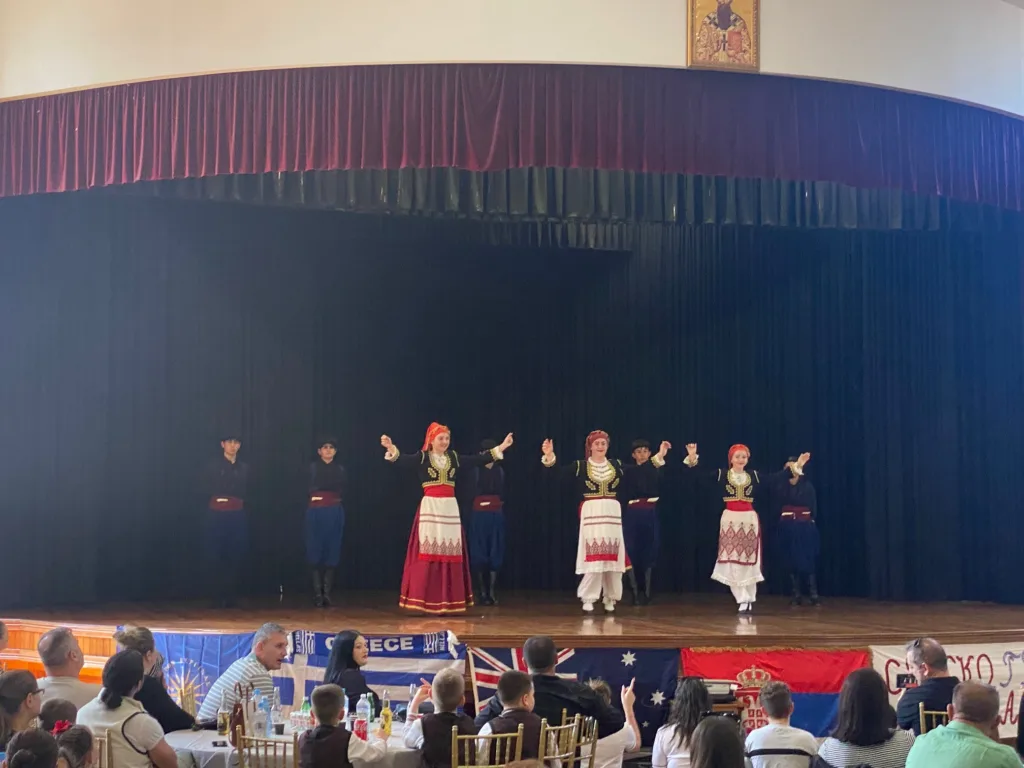
The Serbian Ambassador was the first to deliver a brief greeting from the stage, praising the initiative of the Serbian Orthodox Parish towards the Greeks, emphasising once again the deep bonds between the two nations and peoples over centuries, especially in recent years.
A similar greeting was delivered by Ms Christofilopoulou, focusing on the strong ties between the two peoples. She congratulated the organisers, Dimitrios Kametopoulos from the Greek side and Branko Kondic from the Serbian side.
Following this, Mr Kametopoulos read a greeting message from the High Commissioner of the Republic of Cyprus in Australia, Antonis Sammoutis. In his message, Mr Sammoutis highlighted the important cultural, geographical, historical, and religious connections between Greeks and Serbs, emphasising their shared struggles for democracy and freedom, and hoped for Cyprus to find its freedom after 50 years of unlawful occupation by Turkey.
After speeches by the dignitaries, a symbolic 30th anniversary cake was cut.
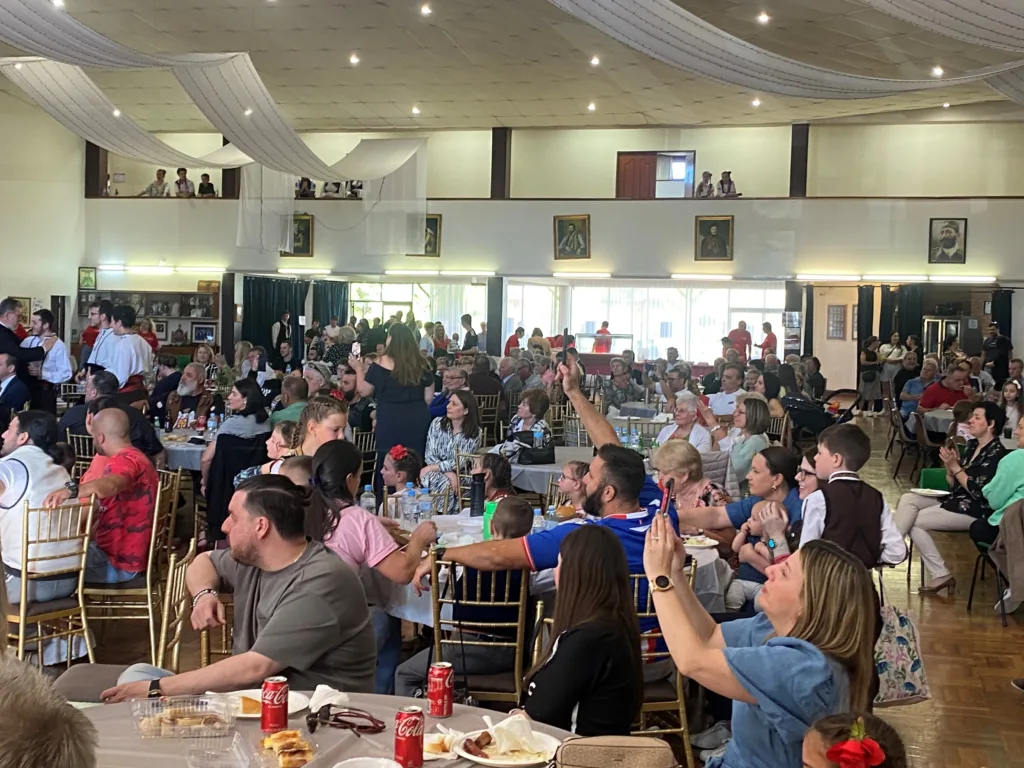
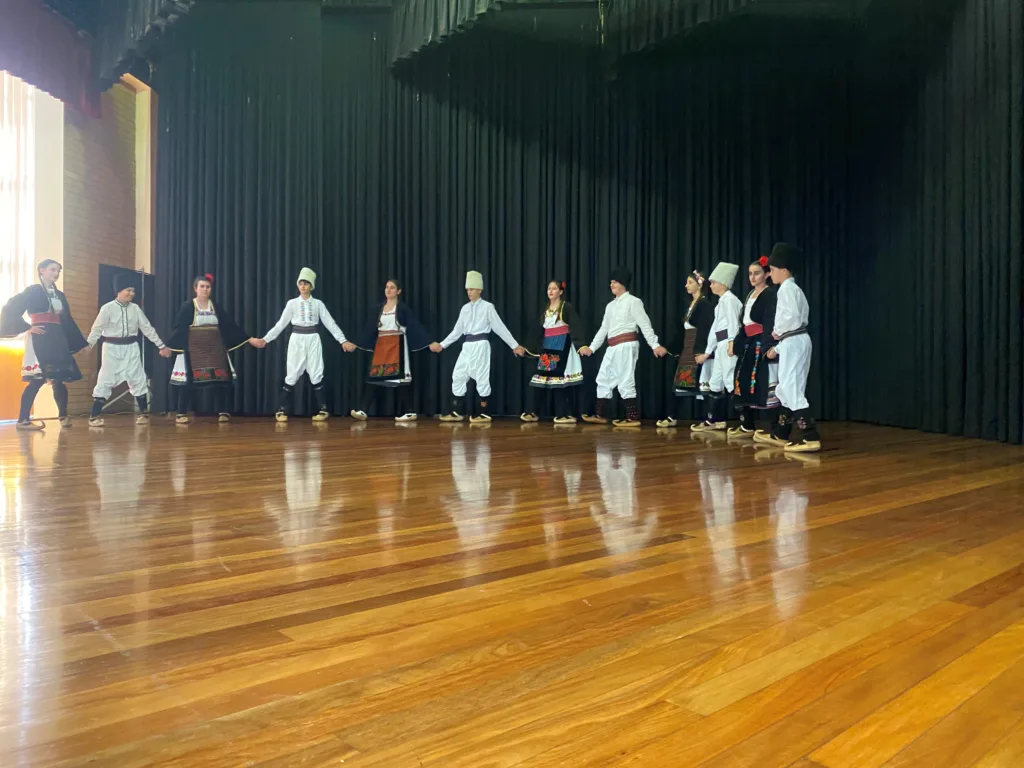
A rich musical and dancing program:
The four-hour musical and dance program was organised and presented in three languages (Serbian, Greek, and English) with great enthusiasm by Mr Kametopoulos and Mr Kondic.
The participation of local Greek and Serbian dance schools, along with a dance troupe from the Bulgarian community, added a unique flair of traditional costumes and sounds within the hall of the Serbian Orthodox Church.
The Greek groups included dancers from the Cretan Association of Sydney and NSW, the Cyprus Community of NSW Dance Group, and Sydney Sizmos. The Serbian attendees enthusiastically stood up, giving warm applause to the Greek groups after each performance.
Simultaneously, the Bulgarian group “Bulgarian Rhythms,” making its first appearance at this year’s celebration, received resounding applause for its presentation of Bulgarian dances from the Pirin region and from central and northern Bulgaria, further enhancing the Balkan flavour of this 30-year celebration of Greek-Serbian friendship.
The Serbian dance groups also impressed with the speed of their dance movements, colourful costumes, and traditional sounds from northern Serbia and the province of Vojvodina, central Serbia, and the province of Sumadija in the southeast of Kosovo, as well as areas along the southern borders with the Republic of North Macedonia.
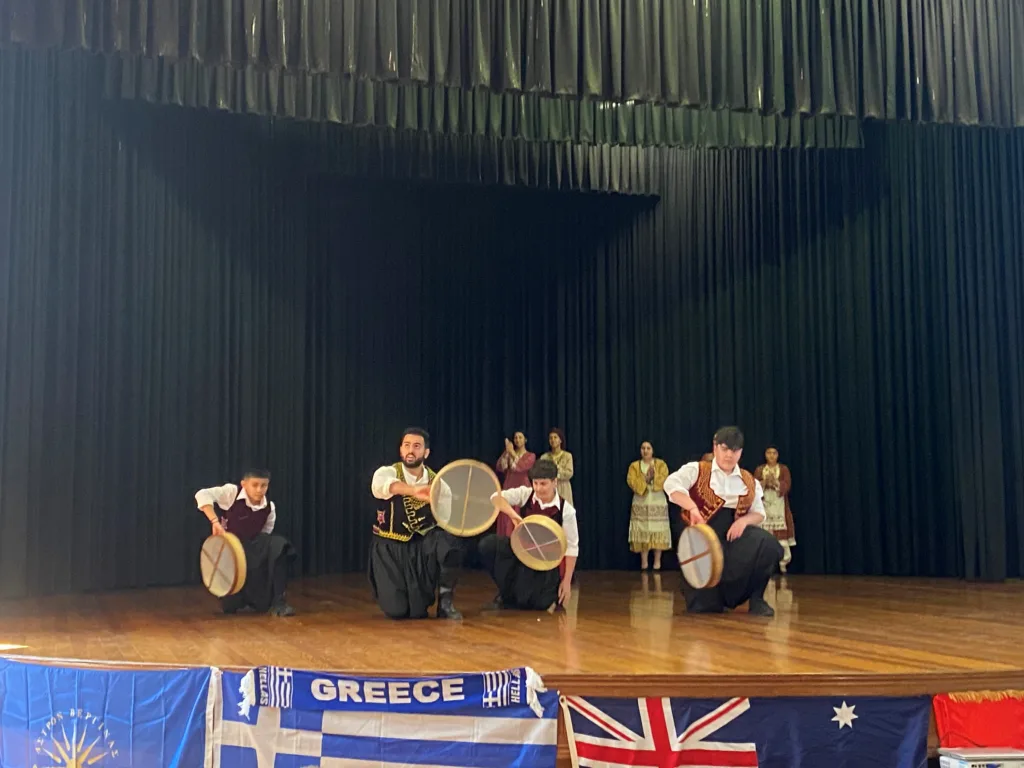
Date set for 2025:
This year’s 30th anniversary celebration between the Greek and Serbian communities was characterised as the best yet in terms of attendance, energy, and enjoyment. Once again, the already strong ties between the two communities were reinforced.
The next meeting between Greeks and Serbs is scheduled for mid-September 2025 for the “31st Greek-Serbian Orthodox and Cultural Friendship Day.” Until then, the Greek-Serbian friendship, love, and mutual respect between the two nations, states, and communities in Sydney will remain strong over time and will be part of multicultural and multiethnic Australia.
